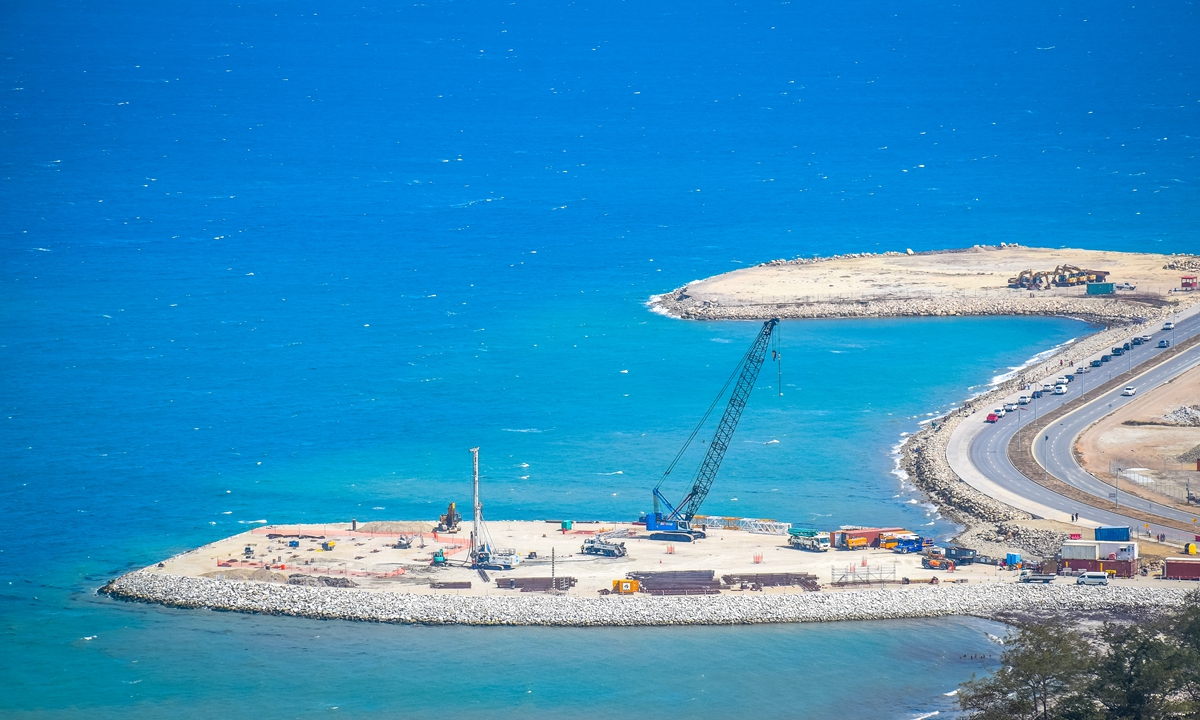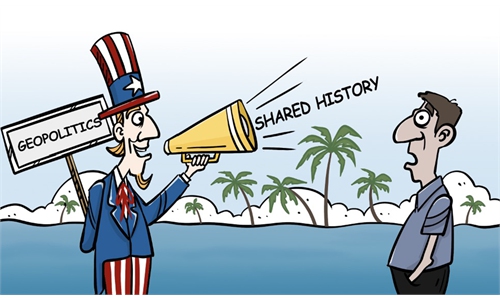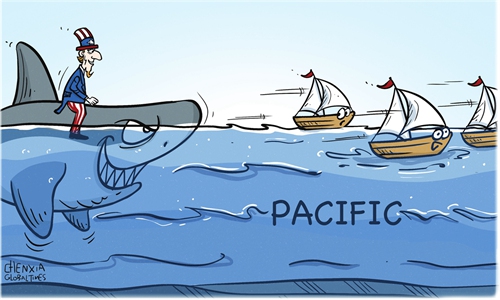US aims to make 'mafia-like' moves by expanding sphere of influence in South Pacific, reflecting its strategic anxiety

View of Port Moresby, the capital city of Papua New Guinea Photo: VCG
With senior US officials ramping up efforts to boost the US' political and military influence in the South Pacific, the US is set to deploy a coastguard ship to Papua New Guinea (PNG) but emphasized that it's not seeking a permanent base in the country, a move that reflects its ill-intentioned motives of turning the region into its sphere of influence, some experts said, who also believed that Washington's moves in the region tend to be "mafia-like."
US Defense Secretary Lloyd Austin on Thursday announced the deployment of a US Coast Guard ship to PNG, but he said that the US government was not seeking a permanent base in the country. Austin is the first Pentagon chief to visit the Pacific country, and the trip, hailed as historic by some media, comes after the US signed a defense cooperation pact with the PNG in May.
Meanwhile, US Secretary of State Antony Blinken visited New Zealand on Thursday after wrapping up his trip in Tonga as part of a "diplomatic push" to counter China in the region, some US media reported, saying that "the door was open for New Zealand" to engage with the AUKUS weapons development and procurement project between the US, the UK and Australia.
However, New Zealand's longstanding commitment to remaining nuclear-free means it won't play a role in Australia's plans to acquire nuclear-powered submarines, the leaders from both countries said after meeting Wednesday, the AP reported.
"The US has been making some mafia-like moves in the South Pacific region by ganging up and forming small cliques," Chen Hong, president of the Chinese Association of Australian Studies and director of the Australian Studies Center at East China Normal University, told the Global Times on Thursday.
Blinken and Austin will meet their counterparts this week in Brisbane for the Australia-US Ministerial Consultations, which will be held on Saturday, with discussions on the sale of submarines as part of AUKUS, security in the Pacific and the Ukraine crisis on the agenda, according to media reports.
"The US is trying to impose both political and military control over the Pacific Island countries, where PNG is a pillar country for expanding its influence," Chen said, noting that the US is trying to increase its intelligence gathering capabilities in the region, targeting China's military activities in the South China Sea.
The Pacific Islands are not the backyard of any country, and China has no interest in competing with any country for influence or seeking a so-called geostrategic presence or sphere of influence, Mao Ning, spokesperson of the Chinese Foreign Ministry, told at a press conference on Thursday.
"We hope the US can sincerely help the Pacific Island nations develop, and assist these nations in achieving development and stability," she said in response to the latest remarks from Blinken in Tonga and the latest visit of Austin to the region.
"The US believes that China's development is too rapid, with its comprehensive national strength and military power catching up with or even exceeding that of the US in some respects. Therefore, it is now a matter of urgency to contain China, especially in the second island chain in the Asia-Pacific region," Yu Lei, chief research fellow at the Research Center for Pacific Island Countries of Liaocheng University, told the Global Times on Thursday.
However, the island nations had been colonized by the West for a long time and are economically weak and impoverished, which makes them skeptical of the West, Yu noted. "Also, the mutually beneficial cooperation between China and these island nations has brought them substantial economic gains and elevated their political status. Some island nation leaders even believe that improving relations with China will make the West take them more seriously," he said.
Despite Blinken warning South Pacific nations on Wednesday about the perils of "predatory" Chinese investment, claiming that there had been increasingly problematic behavior by China in the region, Tonga Prime Minister Hu'akavemeiliku Siaosi Sovaleni said his government does not have any concern over its debt status with China, according to media reports.
Faced with the "threats and enticements" of the West, the Pacific Island nations remain clear-headed, indicating that what these Pacific Island nations truly care about are issues of survival and development, not the so-called fabricated threat from China, experts said.
"The mutually beneficial cooperation between China and the South Pacific region has been warmly welcomed locally and has achieved great success. This has clearly led to significant strategic anxiety on the part of the US," Chen said.


